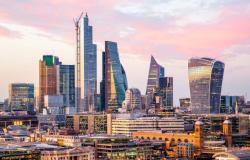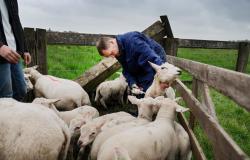The 2023 annual report of the General Intelligence and Security Service (AIVD) was published this week. The AIVD’s annual reports are always worth analysis, because they provide the public with insight into current threats and into the service’s activities. One of the threats that the AIVD warns about is that from organized crime. According to the service, some criminal networks are a danger to our democratic legal order.
Since 2022, the AIVD has been investigating the influence of these networks. It is undesirable for criminals to use violence against each other, but it has always been the case. What the service is seriously concerned about is that criminal networks have suddenly also started attacks in recent years [pleegden] on editors, journalists and lawyers’. According to the AIVD, the fact that ‘a large number of public prosecutors, judges, MPs and administrators’ are being protected is a serious threat to our society, according to the AIVD.
Endangered journalists and MPs
Do journalists and MPs still dare to speak or write freely when they and their loved ones are threatened? Brave people like the Telegraph-crime reporters John van den Heuvel and Mick van Wely and VVD Member of Parliament Ulysse Ellian heroically refuse to remain silent or succumb to criminal violence. But still, such a threat will distract from the important work they do. In any case, it makes them unfree and that does not fit in an open society.
“A risk is also that non-threatened professionals prefer to avoid investigations into organized crime, or that people shy away from choosing a job in the police, the legal profession or public administration,” the AIVD writes. And that is exactly what organized crime is all about.
The local street dealer is not so much the problem in this context. It concerns criminal networks that operate on a large scale, organized crime. These are networks where profits and other interests are so high that criminals are prepared to use serious violence – or more often: have them used – against others.
Such networks often have ‘capacity’ and resources to implement defensive and offensive countermeasures. Defensive measures include deploying counter-observation teams (which try to find out whether criminals from their own network are being followed, for example by the police or other criminals) and regularly changing the cars of drug couriers to be less conspicuous.
Offensive measures could, for example, include violence or threats to deter people from interfering with the criminal network, or infiltration of the government. In the words of the AIVD: ‘They try to bribe and put pressure on people in crucial positions in government and companies. That weakens the government and society from within.’ Organized crime goes very far in its methods.
Subversion as the goal
Terrorists undermine the democratic legal order, that is widely known. They want to destroy or radically change that order through the use of extreme violence. In that respect, terrorists are often more ideologically motivated than criminal networks. Terrorists usually have a ‘higher goal’ in mind: they want to create a certain type of society. Organized crime is more focused on itself, on economic or social gain.
But the difference with the terrorist may be smaller than it seems. A small part of the criminal networks deliberately targets society, in the hope of creating a position within which their own network can do what it wants without interference. The AIVD notes that ‘sometimes they also… intention to have [om] to undermine the democratic legal order’. In other words: this undermining is not a by-product of extreme violence for personal gain, but a conscious (sub) goal.
In those cases there is little difference between the terrorist and organized crime. It is not without reason that countries such as Mexico – and nowadays also cautiously in the Netherlands – talk about ‘narcoterrorism’. The most serious forms of organized crime seriously undermine the democratic constitutional state.
It is good that the AIVD, as an intelligence and security service, focuses on these criminal networks. As a ‘national threat’, this topic follows immediately after jihadist terrorism and radical Islam in the 2023 annual report, but before right-wing, left-wing and anti-institutional extremism and terrorism are discussed. That may say something about the prioritization and the threat itself.
Tough action is required
Strong action must be taken against criminals who hinder judges, public prosecutors, police officers, journalists and MPs in their work by using or threatening to use violence. This is necessary to protect our freedom. Because if people in these positions are not safe – and rightly do not feel safe – to do their work, then there is no real freedom. Such criminals are, on balance, little different from terrorists.
By Bart Collard published in 2023 ‘The right to disinformation’. The book can be purchased and ordered everywhere, including in the Wynia’s Week store. Look HERE.
The donors makeWynia’s Weekpossible. Are you in? You can donate in different ways. LookHERE. Thank you!






